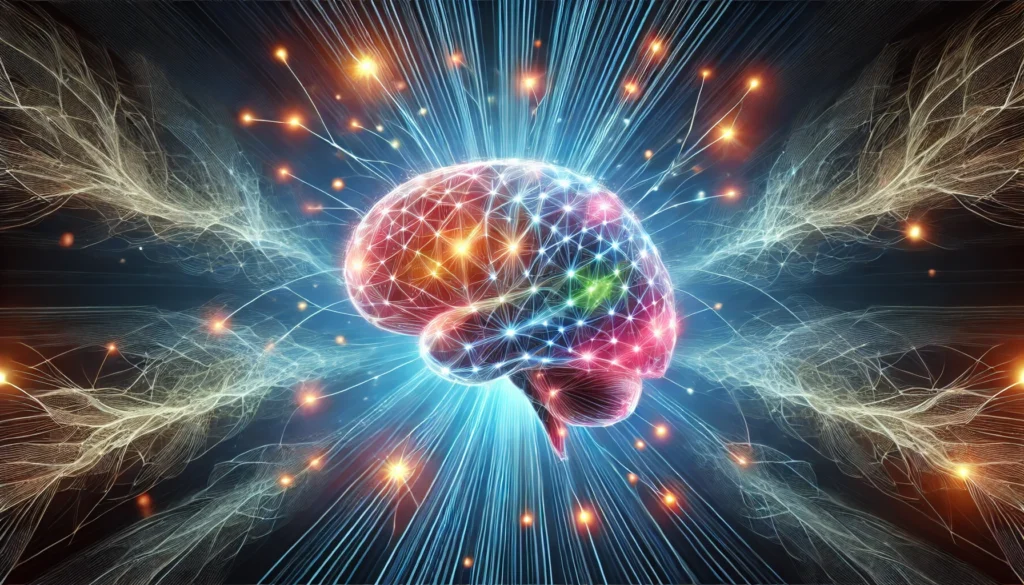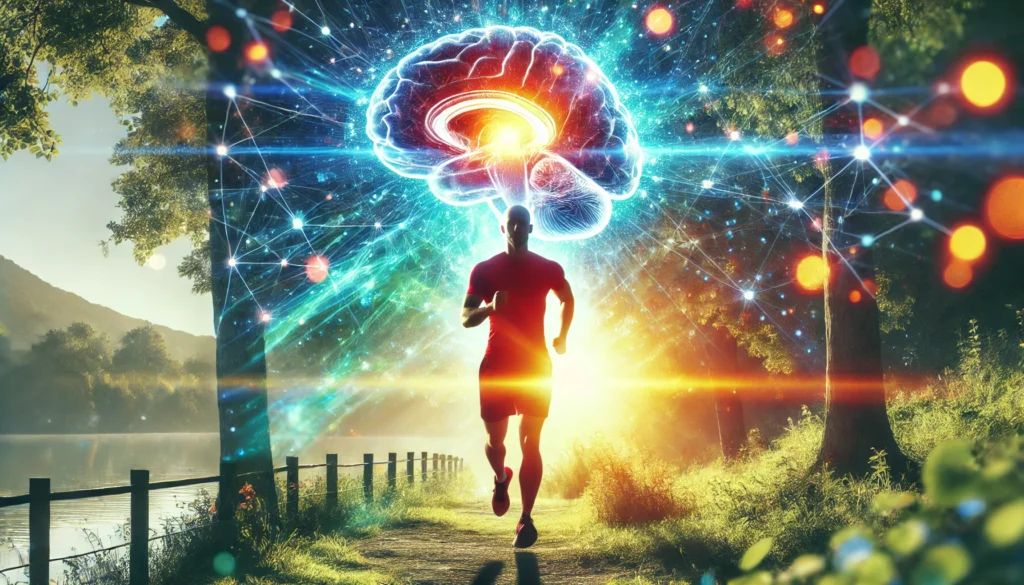In the hustle and bustle of our daily lives, we often overlook one of our most vital assets: our brain. It’s the powerhouse that drives every thought, decision, and movement. Yet, how often do we consciously work on enhancing our mind’s capabilities? This article delves into effective strategies to boost brain power, keep the mind active, and promote mental well-being.
You may also like: Top Herbs to Enhance Your Focus
Understanding the Brain: A Brief Overview
Before diving into strategies, it’s essential to understand the basics of brain functionality. The brain is a complex organ, responsible for everything from regulating bodily functions to enabling thought processes. Enhancing its power means fostering its health through various methods.
The Brain’s Architecture
The brain is an intricate network of neurons and synapses that communicate through electrical and chemical signals. Its various parts, such as the cerebrum, cerebellum, and brainstem, have distinct roles in processing information, controlling movement, and regulating vital functions. Understanding this architecture can help us appreciate how different activities and strategies can target specific areas for improvement.
Neuroplasticity: The Brain’s Adaptability
Scientific research has shown that the brain is remarkably adaptable, a phenomenon known as neuroplasticity. This capacity allows the brain to reorganize itself by forming new connections, especially in response to learning or experience. By engaging in brain-boosting activities, we can enhance this adaptability and improve cognitive functions. This adaptability also underscores the importance of lifelong learning and mental engagement in maintaining brain health.
Brain Health and Longevity
Maintaining brain health is crucial for longevity and quality of life. Factors such as genetics, lifestyle, and environment all play roles in determining brain health. By understanding these factors, we can better tailor our strategies to enhance mental performance and prevent cognitive decline.
Daily Strategies to Boost Brain Power
1. Engage in Regular Physical Exercise
Physical activity is not only beneficial for the body but also for the brain. Exercise increases blood flow, which in turn delivers more oxygen and nutrients to brain cells.
Aerobic Exercise and Brain Function
Studies suggest that regular aerobic exercise can enhance memory, attention, and processing speed. Activities like running, swimming, and cycling have been linked to increased hippocampal volume, the area of the brain associated with memory and learning. Incorporating these exercises into your routine can lead to significant improvements in cognitive function.
Strength Training and Neurogenesis
Beyond aerobic exercise, strength training also plays a role in brain health. Research indicates that resistance training can promote neurogenesis, the formation of new neurons, and improve executive function. Regular sessions at the gym or home workouts with weights can contribute to a sharper mind.
Yoga and Mind-Body Connection
Yoga combines physical movement with mindfulness, offering a unique approach to brain health. It has been shown to reduce stress, enhance mood, and improve cognitive flexibility. Incorporating yoga into your regimen can strengthen the mind-body connection, leading to better overall mental well-being.
2. Mental Workouts: Cognitive Exercises
Cognitive exercises are akin to lifting weights for your brain. Activities such as puzzles, Sudoku, and chess challenge the brain, improving memory, problem-solving skills, and attention.
Puzzles and Problem-Solving
Engaging in puzzles like crosswords and Sudoku stimulates the brain’s problem-solving abilities. These activities require logical thinking and pattern recognition, which can enhance neural connectivity and cognitive resilience.
Strategy Games and Critical Thinking
Games like chess and Go demand strategic thinking and foresight. They are excellent for training the brain to think multiple steps ahead, improving planning skills and cognitive flexibility. Regularly challenging yourself with such games can lead to improved mental acuity.
Digital Brain Games
In the digital age, numerous apps and online games are designed to enhance cognitive function. These platforms offer a variety of exercises targeting different aspects of mental performance, from memory to reaction time. Incorporating these into your routine can provide a convenient and effective brain workout.
3. The Power of Meditation
Meditation is a powerful tool for enhancing brain function. It reduces stress, improves concentration, and fosters emotional regulation.

Mindfulness Meditation and Focus
Mindfulness meditation involves focusing on the present moment, which can significantly enhance concentration and attention span. Regular practice helps train the brain to maintain focus, even amidst distractions.
Stress Reduction and Emotional Balance
Meditation is renowned for its stress-reducing benefits. By promoting relaxation and emotional balance, it helps protect the brain from the damaging effects of chronic stress, preserving cognitive function.
Neuroplasticity and Meditation
Studies have shown that meditation can lead to structural changes in the brain, enhancing areas involved in attention, emotional regulation, and memory. This neuroplasticity underscores the long-term benefits of incorporating meditation into your daily life.
Nutrition: Fueling the Brain
4. Brain-Boosting Diet
What you eat has a profound effect on your brain. Foods rich in antioxidants, good fats, vitamins, and minerals provide energy and aid in protecting against brain diseases.
Antioxidants and Brain Protection
Antioxidant-rich foods, such as berries, dark chocolate, and green tea, help protect the brain from oxidative stress and inflammation. These compounds neutralize free radicals, reducing the risk of neurodegenerative diseases.
Omega-3 Fatty Acids and Cognitive Function
Fatty fish, flaxseeds, and walnuts are excellent sources of omega-3 fatty acids, essential for maintaining brain cell membranes and promoting cognitive function. Regular consumption of these foods supports memory and learning.
Vitamins and Minerals for Mental Clarity
Vitamins B, D, E, and minerals like magnesium and zinc play crucial roles in brain health. They support neurotransmitter function, energy production, and protect against cognitive decline. A balanced diet rich in these nutrients is essential for optimal brain performance.
5. Stay Hydrated
Dehydration can lead to confusion and impaired cognitive function. Ensuring adequate water intake is crucial for maintaining concentration and mental agility.
The Role of Water in Brain Function
Water is essential for maintaining the brain’s homeostasis and facilitating neurotransmitter function. Even mild dehydration can impact short-term memory and attention, emphasizing the importance of regular fluid intake.
Hydration and Cognitive Performance
Research shows that proper hydration improves cognitive performance, particularly in tasks requiring attention and complex problem-solving. Staying hydrated is a simple yet effective way to support brain function throughout the day.
Tips for Staying Hydrated
Developing a habit of regular water consumption can be aided by carrying a reusable water bottle, setting reminders, or incorporating hydrating foods like cucumbers and watermelon into your diet.
Sleep: The Unsung Hero of Brain Health
6. Prioritize Quality Sleep
Sleep is essential for brain health. During sleep, the brain consolidates memories and clears out toxins.
Sleep Cycles and Cognitive Restoration
The brain goes through several sleep cycles each night, including REM and deep sleep stages, which are crucial for cognitive restoration. These stages are when memory consolidation and emotional processing occur.
Sleep Deprivation and Cognitive Decline
Chronic sleep deprivation is linked to cognitive decline, affecting memory, attention, and decision-making. Prioritizing sufficient sleep can prevent these negative impacts and enhance daytime performance.
Creating a Sleep-Friendly Environment
To improve sleep quality, establish a regular sleep schedule, create a calming bedtime routine, and optimize your sleep environment by ensuring it’s dark, quiet, and cool. These steps can promote restful sleep and better brain health.
Social Connections and Emotional Well-being
7. Nurture Social Relationships
Interacting with others can sharpen your mind. Social engagement is linked to better brain health and reduced risk of cognitive decline.
Social Interaction and Cognitive Stimulation
Engaging in conversations and social activities stimulates the brain, encouraging the formation of new neural connections. This mental exercise helps maintain cognitive resilience.
Community Involvement and Emotional Support
Participating in community activities or volunteering provides opportunities for social interaction and emotional support, both crucial for mental well-being. These connections can reduce feelings of isolation and depression, enhancing overall brain health.
Building and Maintaining Relationships
Investing time in building and maintaining relationships, whether with family, friends, or colleagues, offers emotional benefits and cognitive stimulation. Regular social activities can keep the mind active and engaged.
8. Manage Stress Effectively
Chronic stress can damage brain cells and reduce the size of the brain’s prefrontal cortex, which is involved in memory and learning.
The Impact of Stress on the Brain
Prolonged exposure to stress hormones like cortisol can lead to structural changes in the brain, affecting areas involved in memory and emotional regulation. Understanding this impact highlights the importance of effective stress management.
Relaxation Techniques for Stress Relief
Techniques such as deep breathing, yoga, and progressive muscle relaxation can help manage stress and promote brain health. Incorporating these practices into your daily routine can mitigate the harmful effects of stress.

Mindfulness and Stress Reduction
Mindfulness practices, including meditation and mindful breathing, have been shown to reduce stress and improve emotional regulation. These techniques foster resilience against stress-related cognitive decline.
Continuous Learning and Skill Acquisition
9. Embrace Lifelong Learning
Never stop learning. Engaging in new activities, such as learning a new language or musical instrument, stimulates the brain and encourages new neural connections.
The Benefits of Learning New Skills
Learning new skills keeps the brain agile and adaptable. It challenges the mind to process information differently, promoting neuroplasticity and cognitive growth.
Language Learning and Cognitive Enhancement
Mastering a new language improves memory, attention, and problem-solving skills. It requires the brain to adapt to new grammatical structures and vocabulary, enhancing overall cognitive function.
Music and Brain Development
Learning to play a musical instrument engages multiple areas of the brain, improving coordination, memory, and attention. This complex activity supports cognitive development and emotional expression.
10. Set Challenging Goals
Setting and achieving goals can provide a sense of purpose and mental stimulation.
Goal-Setting and Motivation
Establishing challenging yet achievable goals fosters motivation and focus. This process engages the brain’s reward system, encouraging persistence and resilience.
The Role of Problem-Solving in Goal Achievement
Achieving goals often involves overcoming obstacles and solving problems, which strengthens critical thinking and decision-making skills. These mental exercises are beneficial for maintaining cognitive sharpness.
Personal Growth and Brain Health
Pursuing personal growth through goal-setting not only enhances brain health but also boosts self-esteem and emotional well-being. This holistic approach supports a thriving mind and body.
The Role of Technology and Modern Science
11. Nootropics and Supplements
Nootropics are substances designed to enhance cognitive function. While some supplements can offer benefits, it is crucial to consult with healthcare professionals before starting any new supplement regimen.
Understanding Nootropics
Nootropics, also known as cognitive enhancers, include a range of natural and synthetic substances. They aim to improve memory, focus, and mental clarity, but their effectiveness can vary.
Potential Benefits and Risks
While some nootropics have shown promise in enhancing cognitive function, it’s essential to consider potential side effects and interactions with other medications. Consulting a healthcare professional ensures safe and informed use.
The Importance of Personalized Supplementation
Each individual’s brain chemistry is unique, making personalized supplementation crucial. Working with a healthcare provider can help identify which supplements might be most beneficial for your specific needs.
12. Brain-Training Apps
In today’s digital age, numerous apps are designed to enhance mental acuity. These apps offer a range of exercises that can improve various cognitive functions, from memory to problem-solving.
The Rise of Digital Brain Training
Technology has enabled the creation of brain-training apps that offer convenient access to cognitive exercises. These apps provide users with personalized training programs to target specific mental skills.
Effectiveness and Limitations
While many apps claim to boost cognitive function, their effectiveness can vary. It’s essential to choose apps based on scientific evidence and user reviews to ensure they provide genuine cognitive benefits.
Integrating Apps into Your Routine
Incorporating brain-training apps into your daily routine can be a fun and effective way to maintain mental sharpness. Consistent use, combined with other cognitive enhancement strategies, can lead to significant improvements.
Conclusion: Cultivating a Strong Brain
Enhancing your mind power is an ongoing journey that requires dedication and consistency. By incorporating these strategies into your daily routine, you can improve your cognitive abilities, maintain a healthy brain, and enjoy a more fulfilling life.
The Journey of Mental Enhancement
Remember, a strong brain is not just about intelligence; it’s about resilience, adaptability, and the capacity to learn and grow. Embrace these strategies and take control of your brain health today. Consistent effort and a proactive approach to mental well-being can lead to a lifetime of cognitive vitality.
Building Resilience and Adaptability
Developing a robust and adaptable mind prepares you for life’s challenges. By fostering resilience through these strategies, you can navigate stress and adversity with greater ease and confidence.

The Lifelong Commitment to Brain Health
Investing in brain health is a lifelong commitment that pays dividends in improved quality of life, enhanced cognitive function, and emotional well-being. Begin your journey today and unlock the full potential of your mind.
Further Reading:
Eight ways to boost your brain power
Important Note: The information contained in this article is for general informational purposes only, and should not be construed as health or medical advice, nor is it intended to diagnose, prevent, treat, or cure any disease or health condition. Before embarking on any diet, fitness regimen, or program of nutritional supplementation, it is advisable to consult your healthcare professional in order to determine its safety and probable efficacy in terms of your individual state of health.
Regarding Nutritional Supplements Or Other Non-Prescription Health Products: If any nutritional supplements or other non-prescription health products are mentioned in the foregoing article, any claims or statements made about them have not been evaluated by the U.S. Food and Drug Administration, and such nutritional supplements or other health products are not intended to diagnose, treat, cure, or prevent any disease.


